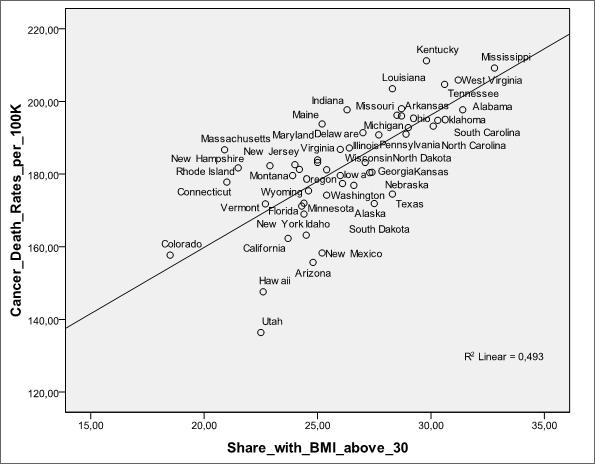| Author |
 Topic Topic  |
|
|
dan
611 Posts |
 Posted - 04/07/2010 : 21:22:24 Posted - 04/07/2010 : 21:22:24


|
It is widely believed that cancer can be prevented by high intake of fruits and vegetables. A major new (2010) study of almost a half million people over 8 years with 52 researchers has found increased fruit and vegetable consumption results in a minimal (1-3%) overall cancer risk reduction. Fruit and Vegetable Intake and Overall Cancer Risk in the European Prospective Investigation Into Cancer and Nutrition (EPIC) http://jnci.oxfordjournals.org/cgi/content/abstract/djq072
Wow, I expected higher vegetable consumption to have more of an impact if only from an acid-alkaline balance perspective.
Study results like these can be bewildering, but ultimately there is or will be a simple way to make sense of them. The best theory I have found are the three necessary factors of cancer from Dr. Kelley (One Answer to Cancer) http://www.drkelley.com/CANLIVER55.html , which remain intact. I have been amazed over the years at how most cancer study results can be understood in the context of these three factors:
(I) The presence of a stem cell that becomes genetically damaged. In the cases of squamous cell carcinoma and basal cell carcinoma, this damage may result from excessive sun exposure. Chronic inflammation can be a cause of genetic damage in some cancers. Excessive body fat mass leads to chronic inflammation.
(II) The presence of hormones associated with pregnancy. These hormones stimulate a cancerous cell to multiply itself repeatedly, resulting in tumor growth. Again, excessive body fat results in higher levels of these hormones.
(III) A deficiency of active pancreatic enzymes produced by the pancreas. These enzymes circulate in the blood to selectively destroy cancerous cells along with specialized white blood cells known as natural killer cells. The body needs a daily protein fast for these digestive enzymes to circulate effectively for cancer control.
The risk of cancer is understandably higher in obese people but there are also plenty of thin people stricken with the disease. The chart below shows states with higher obesity rates tend to have higher cancer rates. http://www.creativeclass.com/creative_class/2009/11/25/the-geography-of-obesity/

Vitamin D promotes cellular differentiation (cell type change from malignant to normal), inhibits cellular proliferation through its hormonal properties, and reduces cancer risk and metastatic potential. Vitamin D is probably the single most important cancer prevention measure. Sunscreen use may or may not prevent genetic damage in the skin but does prevent vitamin D from being synthesized from sunlight. Sunscreen use results in an uncertain risk/ benefit result for skin cancer but a severe negative impact for other cancers. Omega 6 (peanut, soy, corn, canola, safflower, sunflower) oils promote skin cancer. An excess of the growth hormone insulin from a high carb diet is also cancer promoting. |
|
| |
 Topic Topic  |
|
|
|

